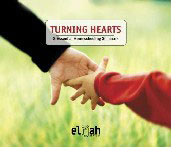Your Child's Emotional Bank Account, part 1
If you missed past issues of the e-journal, you can read them HERE>>
by Ellyn Davis
Several weeks ago I had an unhappy disagreement with a close friend. This friend has gone through some really tough times in the past year and needed money. I wanted to help her, so gave her different types of work she can do to bring in some income. But it seemed like no matter what I gave her to do, she would only get the job partially done and she always had a good excuse for why she didn’t get around to doing what she’d committed to do.
Her lack of follow-through was beginning to seriously affect my business, because her failure to complete what she had agreed to do kept me behind in getting the work done that I needed to do. I found myself becoming critical and impatient when I was around her and resentment began creeping into my interactions with her. I finally reached the point where I had to have a “talk” with her, expressing my frustration that work she had committed to do for me wasn’t getting done and explaining how it was affecting my business and our relationship.
She couldn’t seem to understand why I was frustrated and thought I should have been more understanding of her fragile emotional state and the way it was affecting her work. I found myself telling her, “But what you don’t understand is that you’re making too many withdrawals from your emotional bank account with me.”
She didn’t really grasp what I was talking about, so I explained the concept of an “emotional bank account” in a relationship.
Building an emotional bank account is the cornerstone of building healthy relationships, so I thought I’d devote this article to an explanation of the idea.
What is an emotional bank account?
The “emotional bank account” is a concept Stephen Covey introduced in his landmark book, The Seven Habits of Highly Effective People. He describes it this way:
“We all know what a financial bank account is. We make deposits into it and build up a reserve from which we can make withdrawals when we need to. An Emotional Bank Account is a metaphor that describes the amount of trust that's been built up in a relationship. It's the feeling of safeness you have with another human being.
If I make deposits into an Emotional Bank Account with you through courtesy, kindness, honesty, and keeping my commitments to you, I build up a reserve. Your trust toward me becomes higher, and I can call upon that trust many times if I need to. I can even make mistakes and that trust level, that emotional reserve, will compensate for it. My communication may not be clear, but you'll get my meaning anyway. You won't make me "an offender for a word." When the trust account is high, communication is easy, instant, and effective.
But if I have a habit of showing discourtesy, disrespect, cutting you off, overreacting, ignoring you, becoming arbitrary, betraying your trust, threatening you, or playing little tin god in your life, eventually my Emotional Bank Account is overdrawn. The trust level gets very low. Then what flexibility do I have?
None. I'm walking on mine fields. I have to be very careful of everything I say. I measure every word. It's tension city, memo haven. It's protecting my backside, politicking.”
The Importance of Making Deposits to Emotional Bank Accounts
Think of it this way: When your checking account is overdrawn, it is hard for you to give away money. Similarly, people have emotional bank accounts that must be sufficiently full for them to give back to you--not money, but time, personal responsibility, help, cooperation, and (in the case of children) good behavior.
If a relationship is wounded, we have probably made too many “withdrawals” and not enough “deposits” into that person’s account. Even with the people we love the most, our bank account is often seriously overdrawn. The only solution is to regularly make deposits while avoiding withdrawals. This takes courage and considerable self-discipline. After all, you may believe that their account with you is seriously overdrawn, and you may resent having to be the one to change. However, change must start somewhere, so it might as well start with you.
It might help you to think of these deposits as long-term investments.
Adding regular “deposits” into the emotional bank accounts of the people you love is smart investing in their future, so they will feel secure in “withdrawing” or giving back to you. But bear in mind, you probably will not see results immediately.
Children with “full” emotional bank accounts give back in the form of respect, cooperation, and ungrudging obedience.
But there is also such a thing as "counterfeit currency" when it comes to an emotional bank account.
A child (or even another adult) who feels that he is running a “negative balance” will resist you either actively or passively. In a backwards psychological way, an "overdrawn" person may use negative attitudes and behavior to get the attention (which is a form of deposit) he or she needs.
Children need emotional "currency" and will get it whatever way they can. Being yelled at is better than being ignored, as it fills their emotional accounts with a “bad currency” rather than leaving it “in the red.”
Most children are naturally narcissistic to some extent because their concept of the world is focused on them and their needs. But that natural narcissism is usually outgrown or at least balanced as they become older. However, children who grow up with their emotional bank accounts consistently overdrawn may develop clinical narcissism where as adults life is always "all about them." These people are never emotonally satisfied because they have accumulated so much relational "debt."
An Emotional Bank Account is a Measure of the Trust in a Relationship
Stephen Covey uses the metaphor of Emotional Bank Account to describe "the amount of trust that’s been built up in a relationship.” Trust is needed for a relationship to thrive. Without trust, we may manage to accommodate and endure another person, however, it cannot be mutually satisfying in the long run.
It is easy to take another person, a spouse or friend, a relative or anyone we deal with, for granted. Yet, the level of good will that exists in the relationship determines the well-being and ease we feel. It provides the foundation we can build on.
When we have a comfortable cushion of "wealth" in our emotional bank account with another person, the relationship is stable. We can afford to have disagreements or arguments. Because the trust level is high, conflicts can be resolved.
But when our account is low or even overdrawn, the relationship is in danger. We can’t afford any more withdrawals and need to be mindful to make deposits again, so it can be salvaged and survive.
Here’s a final note from Covey’s The Seven Habits of Highly Effective People:
"If a large reserve of trust is not sustained by continuing deposits, a marriage will deteriorate. Instead of rich, spontaneous understanding and communication, the situation becomes one of accommodation, where two people simply attempt to live independent life-styles in a fairly respectful and tolerant way. The relationship may further deteriorate to one of hostility and defensiveness. The "fight or flight" response creates verbal battles, slammed doors, refusal to talk, emotional withdrawal and self-pity. It may end up in a cold war at home, sustained only by children, sex, social pressure, or image protection. Or it may end up in open warfare in the courts, where bitter ego decimating legal battles can be carried on for years as people endlessly confess the sins of a former spouse.
And this is in the most intimate, the most potentially rich, joyful, satisfying and productive relationship possible between two people on this earth.
Our most constant relationships, like marriage, require our most constant deposits. With continuing expectations, old deposits evaporate. If you suddenly run into an old high school friend you haven't seen for years, you can pick up right where you left off because the earlier deposits are still there. But your accounts with the people you interact with on a regular basis require more constant investment. There are sometimes automatic withdrawals in your daily interactions or in their perception of you that you don't even know about. This especially true with teenagers in the home.
Now suppose this son is in the process of making some important decisions that will affect the rest of his life. But the trust level is so low and the communication process so closed, mechanical, and unsatisfying that he simply will not be open to your counsel. You may have the wisdom and the knowledge to help him, but because your account is so overdrawn, he will end up making his decisions from a short-range emotional perspective, which may well result in many negative long-range consequences.
What would happen if you started making deposits into the relationship? Maybe the opportunity comes up to do him a little kindness - to bring home a magazine on skateboarding, if that's his interest, or just to walk up to him when he's working on a project and offer to help. Perhaps you could invite him to go to a movie with you or take him out for some ice cream. Probably the most important deposit you could make would be just to listen, without judging or preaching or reading your own autobiography into what he says. Just listen and seek to understand. Let him feel your concern for him, your acceptance of him as a person.
He may not respond at first. He may even be suspicious, but as those genuine deposits keep coming, they begin to add up. That overdrawn balance is shrinking.
Remember that quick fix is a mirage. Building and repairing relationships takes time. If you become impatient with his apparent lack of response or his seeming ingratitude, you may make huge withdrawals and undo all the good you've done.
Building and repairing relationships are long-term investments."
Coming next week...The Six Major Deposits to Emotional Bank Accounts
Top Resources for Building Emotional Bank Accounts
The Seven Habits of Highly Effective People by Stephen Covey. Covey’s ideas are so widely circulated that if you don’t read his book, you’ll be at a disadvantage when people start talking about concepts from the book like “win-win” and “synergy.” But that’s not the real reason to read his book. The real reason is that it is one of the absolute greatest distillations of the concepts that it takes to move toward success and effectiveness in every area of life, including relationships.
The Seven Habits of Highly Effective Families by Stephen Covey. Covey defines success in relationships as "a beautiful family culture" and encourages every parent to do some soul searching to become aware as to what really is priority in life. Then, he suggests we put "first things first." Most of us really want to have family come first, but doing that is often easier said than done. In this book, Covey clearly points out the essentials...such as establishing effective communication lines through family meetings and one-on-one talks with the kids. One of the most transforming things in this book is his description of how to create a family mission statement. This becomes a guiding principle of family life and was invaluable to our familyl as the children were growing up.
How to Really Love Your Child. In this extrordinary book, Dr Ross Campbell helps parents manifest love toward their children in all situations of child-rearing through the teen years. Many parents do not know how to express affection in ways that make a chid feel loved. This book details practical demonstrations of that are meaningful to children.
How to Really Love Your Teenager is specifically addressed to parents of teens. Dr. Ross Campbell believes that parents experience their greatest difficulties at this stage because they are unable to relate to the moodiness and self-identity issues that teens go through. So parents often harbor misconceptions and face disappointment in their relationships with their teens. This book offers ideas to help you communicate unconditional love, handle teenage anger . . . as well as your own, deal with adolescent depression and help your teenager grow spiritually and intellectually.
The Five Love Languages. Unhappiness in a relationship often has a root cause: we speak different love languages. Each of us has a "love language" of certain actions and words that when others use them it makes us feel loved. Do you feel most loved when those you love spend quality time with you, give you gifts, speak words of affirmation, perform acts of service, or when they touch you affectionately? This is a very thought-provoking and helpful book because it has given us greater understanding of how to show we care in a way that is most meaningful to the other person.
The Five Love Languages of Children and The Five Love Languages of Teenagers focus on finding the form of love most meaningful to each of your children and how to express love in ways that they can truly appreciate and receive it.
The Blessing. In the Bible, the parents' blessing was especially powerful, often defining the course of a child's life. This book discusses how a parent's words can shape identity for good or evil, and how what we speak over our children can hlep them become who God means them to be. It also shares the heartache a lack of parental blessing can bring, and how we can confer a blessing upon our children.
More rants and raves coming in the next issue . Stay tuned....
View past ejournals HERE>>
P.S. Here are the webpages I've finished. Each page listed will take you to more pages on that topic.
Webpages about choosing teaching materials
Webpages about the importance of reading great books and booklists for children of all ages
Any article appearing on this website may be copied or forwarded electronically provided that proper credit is given and that the article is not substantively modified.
No article may appear in whole or in part in a publication sold for profit or as part of any commercial endeavor without the written consent of Home School Marketplace.
© Copyright 2006. Home School Marketplace, 1053 Eldridge Loop, Crossville, TN 38571.
Be sure to sign up for our ejournal!
Sign up below.
|

 See My Makeover and Take Part in a Telephone Conference with an Image Consultant
See My Makeover and Take Part in a Telephone Conference with an Image Consultant 





